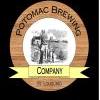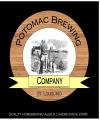
Super High Efficiency...why?
#1

Posted 10 August 2010 - 08:23 AM
#2

Posted 10 August 2010 - 08:52 AM
#3

Posted 10 August 2010 - 09:03 AM
I batch sparge so I guess that's not it. Lemme ask this...does it matter if you sparge slow or fast if you're a "batch sparger"?!Sparging slowly definitely will help efficiency if you fly sparge.
#4

Posted 10 August 2010 - 09:05 AM
Shouldn't. All you're doing is draining the tun and I don't see why it would matter whether you did that fast or slow. If anything, going slower would hurt efficiency since the liquor cools off slightly as you go.I batch sparge so I guess that's not it. Lemme ask this...does it matter if you sparge slow or fast if you're a "batch sparger"?!
#5

Posted 10 August 2010 - 09:13 AM
#6

Posted 10 August 2010 - 09:18 AM
#7

Posted 10 August 2010 - 01:26 PM
#8

Posted 10 August 2010 - 05:34 PM
Without knowing the size of your grain bill, I can only make some generalized statements, but 70% efficiency is pretty low unless you had a larger grain bill than I would expect for a Blonde Ale and it almost guarantees that you've been draining your tun before you have anywhere near 100% conversion. In that case, even when Batch Sparging, you can get higher efficiency when sparging slow and when using a lightly kilned, highly diastatic malts like Pilsner Malt. 83% is reasonably conservative for an average sized beer.The increased diastatic activity can mean that you get more conversion in less time, meaning that you would have more conversion and higher efficiency if you are draining too soon. Draining slowly adds more time during which conversion can occur, which can also be accelerated by the higher temperature of the sparge water, and lead to higher efficiency.If you learn to check the gravity of the mash liquor compared to the mash thickness, you'll be able to determine if the mash has completed conversion before you start your first runnings.I brewed a batch of my Sneaky Big Blonde Ale last Thursday and had some insane efficiency numbers, 83%! I'm normally right at 70% and all my recipes are tuned to that number. Looking back, everything I did was normal with this batch except for a couple of things.1) I sparged extremely slowly2) I used Pilsner malt as my base malt (as opposed to American 2-Row which I normally make this with)Would either of these two account for my increase in efficiency?
It has little to do with dissolving sugars and more to do with starch conversion. If you have 100% conversion before you add the sparge water, the sugars are all in solution and it only takes the time needed for a good stir to get the solution homogeneous enough for an additional rest not to matter. However, if you have not yet reached 100% conversion at that point, adding additional time at higher temperature can complete conversion and lead to significantly higher efficiency.I think where most tend to hurt their efficencies (sp) when batch sparging is not allowing enough time in between sparges for the sugars to dissolve into the liquor.
1 user(s) are reading this topic
0 members, 1 guests, 0 anonymous users










